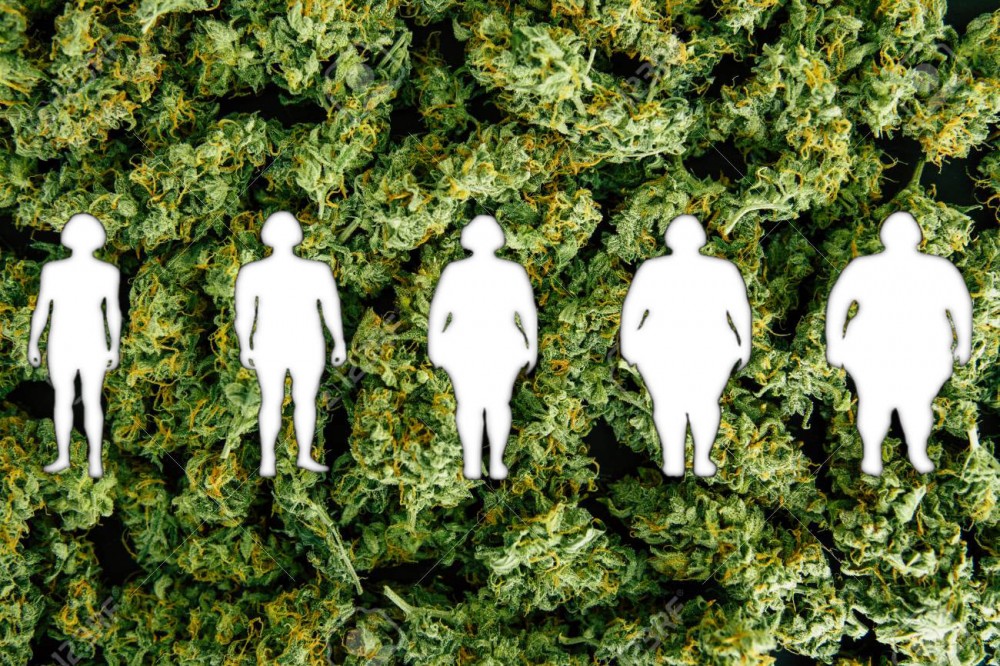Can Cannabis Reduce Obesity?
Cannabis for Obesity is Getting Science Excited from CannabisNet on Vimeo.
Obesity isn’t the same thing as being overweight. Obesity is a much more serious condition that can lead to chronic illness. Medically speaking, a person who is obese has too much adipose (fat) tissue in their body.
Obesity can be determined through a number of ways; one of the most commonly used by doctors is the Body Mass Index (BMI). For adults, a healthy weight is when your BMI ranges between 18.5 to 25. However, even if your BMI is within the healthy range, if you have a large waist circumference (fat around the waist), this can still lead to complications similar to those brought about by obesity. Too much abdominal fat can increase the risk factors associated with obesity; for men, a healthy waist circumference is less than 40 inches while for women it’s less than 35 inches.
Over 1/3 of the US adult population is obese. Complications that can arise due to obesity include the increased risk for certain kinds of cancer, type 2 diabetes, stroke, heart attacks, and other cardiovascular diseases. The most common culprits of obesity among Americans includes the consumption of fast food, sedentary lifestyles, and lack of exercise.
Preventing obesity doesn’t entail rocket science; as long as you eat healthy, exercise regularly, and get enough sleep, you can prevent it. However, adding cannabis to your diet has also been shown to have a positive impact in reducing obesity (provided you don’t give in to the munchies!).

How Cannabis Can Prevent Obesity
A 2015 study published in Health Economics showed that legalization of cannabis has been associated with reduced obesity. Conducted by researchers at the San Diego State University as well as the Cornell University, the findings revealed that at the state level, those that had a medical cannabis law had “2 percent to 6 percent decline in the probability of obesity.” When you consider this on the long term, there could even be more significant benefits. The study’s authors say; “we estimate a back-of-the-envelop per-person reduction in MML (medical marijuana law)-induced obesity related medical costs of $58 to $115 per year.”
These findings are significant because it goes against the grain when we talk about how cannabis is well-known to stimulate the appetite. However, the researchers wanted to better understand how the availability of medical cannabis affected health at the societal level, so they studied 20 years of data from the Behavioral Risk Factor Surveillance Survey, which takes into consideration information from 5 million responses from 1990-2012. During these years, only a few states had implemented medical cannabis laws while many still did not, which resulted in basically a natural sort of experiment since they didn’t have to change any variables, or add any for that matter.
The researchers found that states that had MMJ laws had lower obesity rates and overall lower BMI indexes, and that several factors were responsible for this. In older adults, they found that cannabis laws “are associated with an increase in physical wellness and frequent exercise”. A possible reason for this could be because cannabis is frequently prescribed to treat chronic pain, one of the conditions that cannabis has been most widely documented to be effective at treating. If cannabis helps treat pain, it enables patients to get more active and burn more calories. Another interesting finding was that among the younger age group, those between the ages of 18 and 24, they say, “Our findings show that the enactment of MML’s is associated with a 3.1 percent reduction in the probability of alcohol consumption and a 4.8 percent reduction in the probability of binge drinking” within this age group. Where more cannabis is available, this leads kids to “substitute away from highly caloric alcoholic beverages toward a lower-calorie marijuana high, resulting in lower body weight and likelihood of obesity.”

Another study also revealed that cannabis consumers have reduced chances of obesity as well as diabetes compared to people who don’t consume cannabis. The researchers found that regular cannabis use, or participants who consumed cannabis within the last month, had lower fasting insulin levels as well as a lower risk for insulin resistance compared to those who never used the plant. They also found a correlation between frequent cannabis use and smaller waist sizes. The findings were only consistent among those who use cannabis regularly, suggesting that the impact of cannabis on insulin is only beneficial when used recently.
Yet another study also shows that cannabis users have the ability to eat more and still weigh less. These findings are important considering the prevalence of obesity in the United States, and its tremendous costs on healthcare. The research concludes: “With the recent trends in legalization of marijuana in the United States, it is likely that physicians will increasingly encounter patients who use marijuana and should therefore be aware of the effects it can have on common disease processes, such as diabetes mellitus.”
OTHER STORIES YOU MAY ENJOY...
CANNABIS FOR WEIGHT LOSS, CLICK HERE.
OR..
WEED STRAINS THAT HELP FIGHT OBESITY, WHAT?? CLICK HERE.








